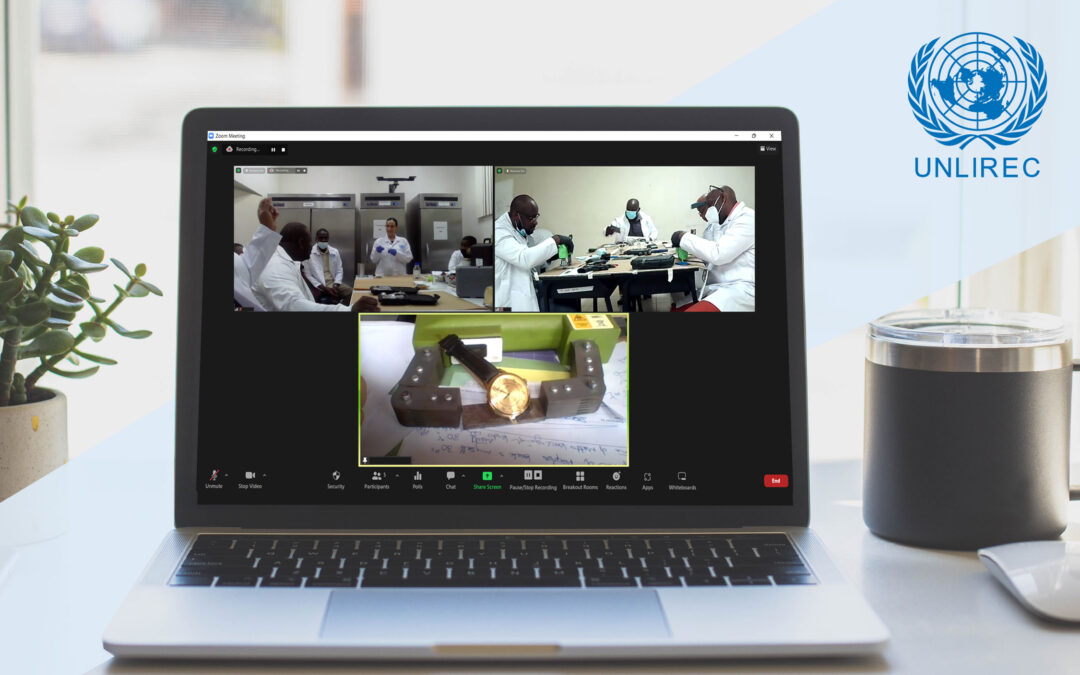On 29 August and from 5 to 7 September, the United Nations Regional Centre for Peace, Disarmament and Development in Latin America and the Caribbean (UNLIREC), in collaboration with the Governments of the Bahamas, Barbados and Grenada, carried out a Serial Number Restoration Course.
In the Caribbean, several factors hinder States to trace one hundred percent of its recovered, illicit firearms, including the age of the firearm, ineffective procedures, and the absence of serial numbers on firearms. Obliterating serial numbers on firearms is a common practice for criminals to mask their origin, facilitate trafficking and their illegal use. UNLIREC has been training Caribbean law enforcement and forensic officials to restore obliterated serial numbers to support criminal investigations, successfully trace weapons and even disband trafficking networks.
The recent four-day course consisted of recorded videos, live online demonstrations, as well as the hands-on use of Magnaflux and Chemical Etching to restore/recover serial numbers from firearms that have been submitted for analysis .
Fourteen officials, including three women, from the Royal Grenada Police Force, Barbados Police Service and Royal Bahamas Police Force participated in the training. “[…] we are now better equipped to use this additional technique in restoring obliterated serial numbers not only from firearms but also from vehicles and equipment which carry serial numbers”, a participant noted.
UNLIREC, as the regional centre of the UN Office of Disarmament Affairs, seeks to advance the cause of practical disarmament in Latin America and the Caribbean as part of its commitment to support Member States.
The Regional Serial Number Restoration Course contributes towards the implementation of Goal 3 of the Caribbean Firearms Roadmap, “Bolster law enforcement capacity to combat illicit firearms and ammunition trafficking and their illicit possession and misuse, and ammunition, and ultimately reducing firearms-related crimes and armed violence in the Caribbean”.
This activity was funded by the United States of America and contributes to the implementation of international disarmament and non-proliferation instruments, in particular, the 2001 UN Programme of Action on Small Arms.

